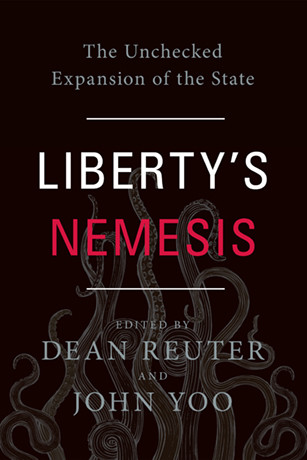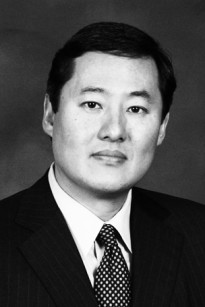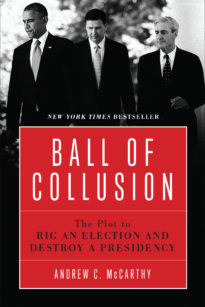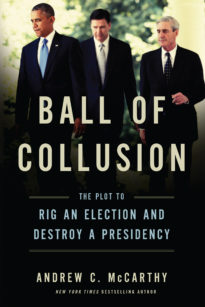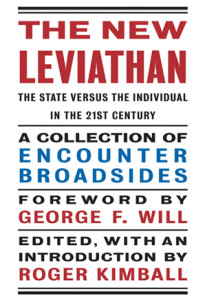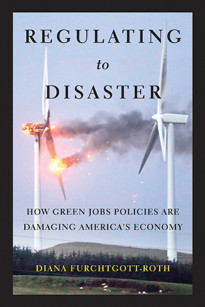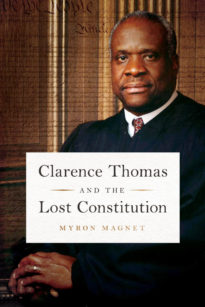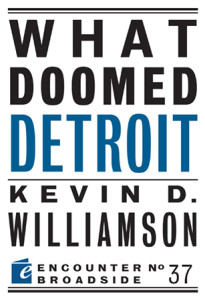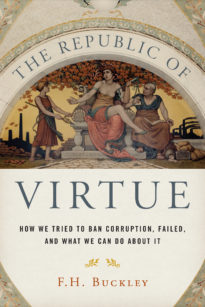This book is an examination and critique of the expanding power of the federal government.
The volume is unique in several ways. First, it is not a rant. It is a careful study and documentation of problems created by agencies given too much authority and sometimes overreaching—exceeding even their generous grants of authority to act. Second, our contributors are particularly qualified to write on these topics, and the list of contributors is long. Most have themselves toiled in the halls of the federal government, while others have worked at the state level, sometimes fending off incursions by the federal government. Many contributors are current or former heads of administrative agencies that assert unprecedented powers; all have special insight into the functions and dysfunctions of the federal government, its penchant for overreach, the administrative state, and what it all means for our liberty. This is particularly poignant since the battle for liberty was presumably won by our founders, who loathed the idea of unfettered government and so created the Constitution we cherish today. Third, whereas some chapters focus on particular agencies or discrete areas of law and policy, others examine the incentives and structures operating throughout the federal government that create the readiness to delegate power to the regulators and then allow them to exercise that power, and more, unilaterally. Finally, our writers propose solutions to both the discrete and the thematic problems they identify, outlining the path back to a government that works to foster success and freedom—to promote the greater good, not to punish.
Our contributors do all this in the shadow of the significant fact that, according to two respected economists, federal regulations have cost the United States economy approximately $38.8 trillion.[1] Indeed, federal regulations have decreased economic growth by about 2 percent annually between 1949 and 2005.[2] Reason Magazine drives the astonishing point home: “the average American household receives about $277,000 less annually than it would have gotten in the absence of six decades of accumulated regulations—a median household income of $330,000 instead of the $53,000 we get now.”[3]
Our writers, while not exactly alone in this critique, are working against the trend of administrative law scholarship. Most administrative law scholars are vocal and committed defenders of the regulatory state;[4] the more cynically minded would say that this might be so because it adds to the mush and the muddle that is prime material from which to churn out scholarship. The canonical text, our Constitution, stands athwart these modern-day insights and necessities, these scholars insist. Thus, this obsolete and imperfect Constitution[5] should be read to accommodate the bureaucracy, not the other way around. Accordingly, it now seems appropriate to state the names of, and to note the contributions made to our enterprise by, various public servants, attorneys, scholars, and activists. Professor Jonathan H. Adler will discuss the arbitrary and capricious implementation and enforcement of Obamacare; former Congressman Bob Barr will address the many-headed threats facing the Second Amendment; Professors Gerard V. Bradley and Robert P. George will address the crisis of religious freedom in America today; Chair of the Center for Equal Opportunity Linda Chavez will explicate the realities of the immigration issue’s presidential versus congressional action dimensions; law school dean emeritus and former commissioner of the U.S. International Trade Commission (ITC) Ronald A. Cass will discuss the courts’ relationship to the administrative state and overreach; stellar Supreme Court advocate Charles “Chuck” J. Cooper will discuss how America’s civil service and bureaucracy abuse their unaccountable power; Professor Richard A. Epstein will focus on presidential overreach in regulating the financial markets; Professor John Eastman will address the same-sex marriage controversy; Harold Furchtgott-Roth, a former commissioner of the Federal Communications Commission (FCC) and currently a senior fellow at the Hudson Institute, will speak to the Obama White House’s interference in the FCC’s “network neutrality” rulemaking; Daniel M. Gallagher and Troy A. Paredes, present and former commissioners (respectively) at the U.S. Securities and Exchange Commission (SEC), will explicate the potential of venture exchanges for small businesses; former White House Counsel C. Boyden Gray and securities litigator John Shu will describe the overreach embedded within the Dodd-Frank statute; Samantha Harris, Director of Policy Research at the Foundation for Individual Rights in Education, and the Foundation’s CEO, Greg Lukianoff, will discuss how campus speech is imperiled every day; Senator Orrin Hatch will explain the role of Congress at a time when the President is incessantly overreaching; F. Scott Kieff, a commissioner of the ITC, will analyze a model for decreasing the probability of Executive Branch overreach; Gibson, Dunn & Crutcher attorneys William J. Kilberg and Thomas M. Johnson will point out the radicalization of the National Labor Relations Board; labor attorney Peter N. Kirsanow will address the new realities of disparate impact jurisprudence and what it means for civil liberties; Nevada’s Attorney General Adam Laxalt and that state’s Solicitor General Lawrence VanDyke will catalogue the history behind and the implications of the Environmental Protection Agency (EPA) asserting power over state waters; former Congressman David McIntosh and attorney William Haun will discuss the imperiled separation of powers in the modern administrative state; attorney and activist Cleta Mitchell will recount the story of the scandal-driven Internal Revenue Service (IRS); West Virginia Attorney General Patrick Morrisey and that state’s Solicitor General Elbert Lin will explain how the federal government has overreached in formulating and applying its environmental regulations; former U.S. Attorney General Michael Mukasey and John Malcolm, former Deputy Assistant Attorney General in the Criminal Division at the U.S. Department of Justice, will explain how the proliferation of regulatory offenses undercuts the moral force of criminal legislation; Maureen Ohlhausen, a commissioner of the Federal Trade Commission (FTC), will address how the FTC’s advertising enforcement policies threaten the free flow of valuable information; Oklahoma Attorney General E. Scott Pruitt will explain how the Obama administration is harming the states by preempting state policies on undocumented immigrants; former White House Counsel Peter J. Wallison will expound on how many of the key financial institutions were designated by the Financial Stability Oversight Council and the Financial Stability Board; and finally, Joshua D. Wright, a commissioner of the Federal Trade Commission, will address the FTC’s Unfair Methods of Competition jurisprudence and relatedly its abuse of prosecutorial discretion.
It is axiomatic that as the federal government expands, individual liberty contracts.[6] Although the federal government is capable of enlarging our liberties and charged with defending our country, it most often acts domestically by limiting our options for action or taking our money to fund a project that might reflect the interests of only a temporary majority. As our contributors describe, a most intense concentration of power is happening within the federal agencies.[7] And it is happening not just because of actors, including the President, within the Executive Branch, but with the cooperation of Congress, the courts, and even the states.
[1] See John W. Dawson & John Seater, “Federal Regulation and Aggregate Economic Growth,” J. Econ. Growth 18 (2013): 137.
[2] See ibid.
[3] Ronald Bailey, “Federal Regulations Have Made You 75 Percent Poorer,” Reason (June 21, 2013), http://reason.com/archives/2013/06/21/federal-regulations-have-made-you-75-per (on file with the editors).
[4] See, e.g., Mark Tushnet, “Epstein’s Best of All Possible Worlds: The Rule of Law,” U. Chi. L. Rev. 80 (2013): 487; Thomas O. Sargentich, “Justice Stephen Breyer’s Contribution to Administrative Law: Introduction,” Admin. L.J. Am. U. 8 (1995): 713; Susan Rose-Ackerman, “Progressive Law and Economics—And the New Administrative Law,” Yale L.J. 98 (1988): 341.
[5] This is to paraphrase the title of a law review article. See Henry P. Monaghan, “Our Perfect Constitution,” N.Y.U. L. Rev. 56 (1981): 353.
[6] Ronald Reagan, U.S. President, “Farewell Speech After Two Terms of Office” (1988), http://www.pbs.org/wgbh/americanexperience/features/primary-resources/reagan-farewell/ (last visited Aug. 12, 2015) (“There’s a clear cause and effect here that is as neat and predictable as a law of physics: As government expands, liberty contracts”).
[7] See Joseph Postell, Robert E. Moffit & Todd F. Gaziano, “How to Limit Government in the Age of Obama,” Heritage Foundation, Lecture no. 1231 on Political Thought, June 25, 2013, http://www.heritage.org/research/reports/2013/06/how-to-limit-government-in-the-age-of-obama.
